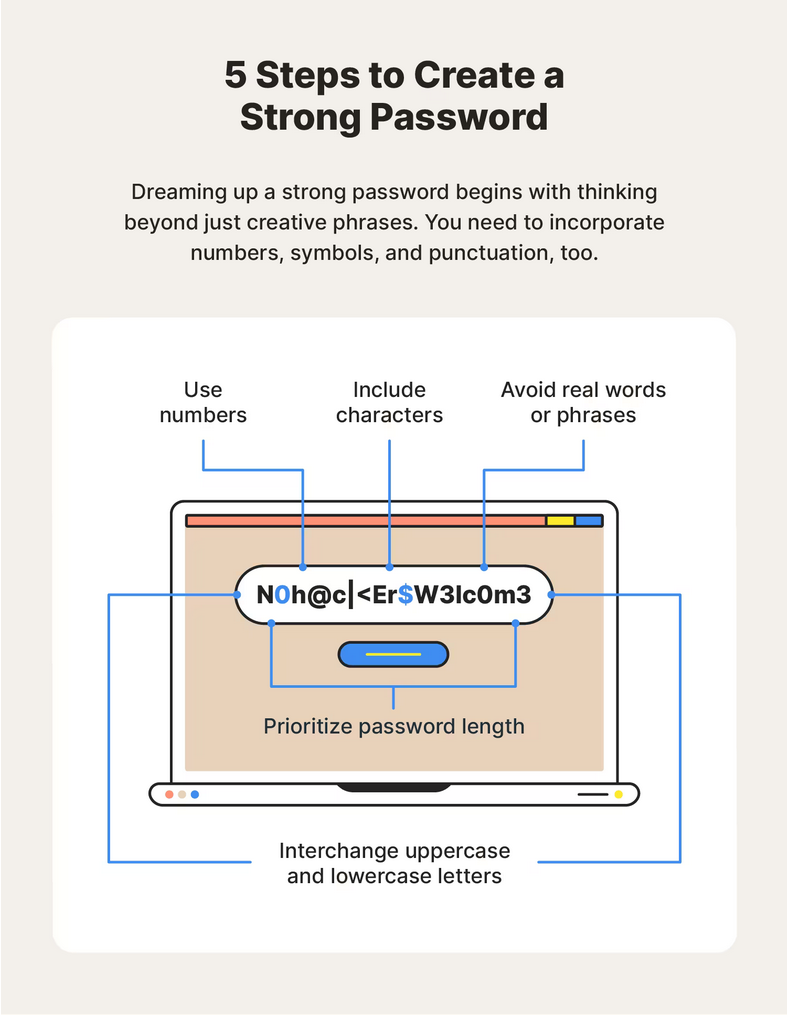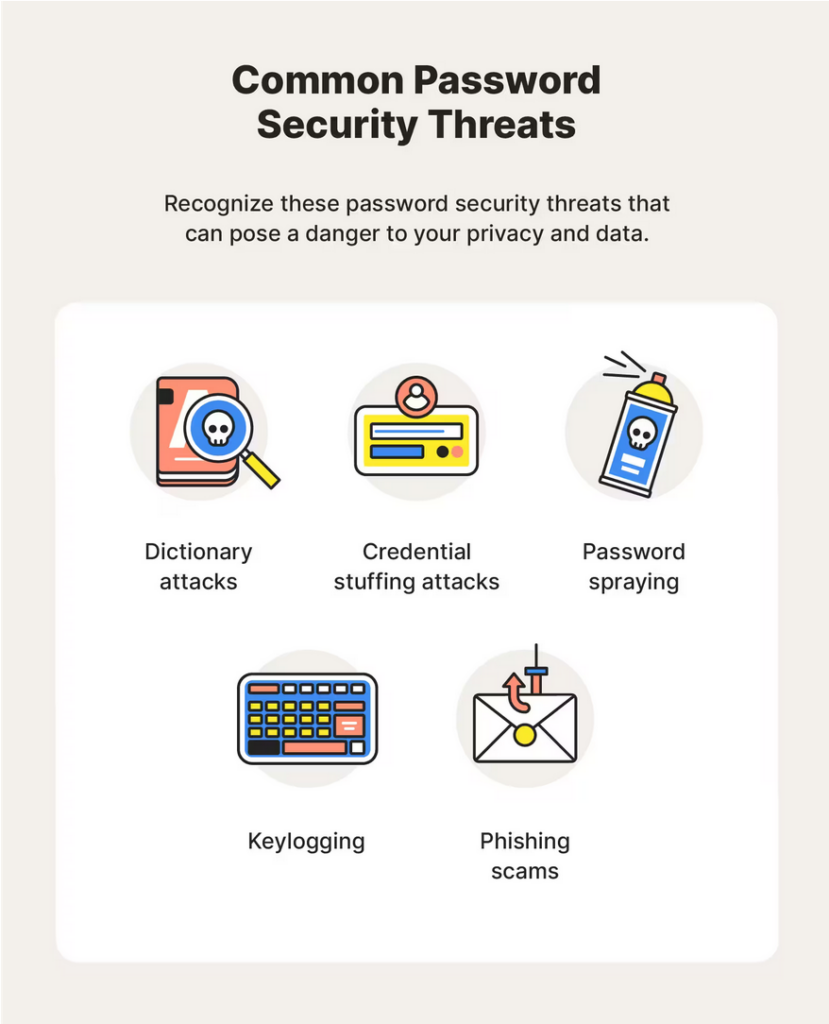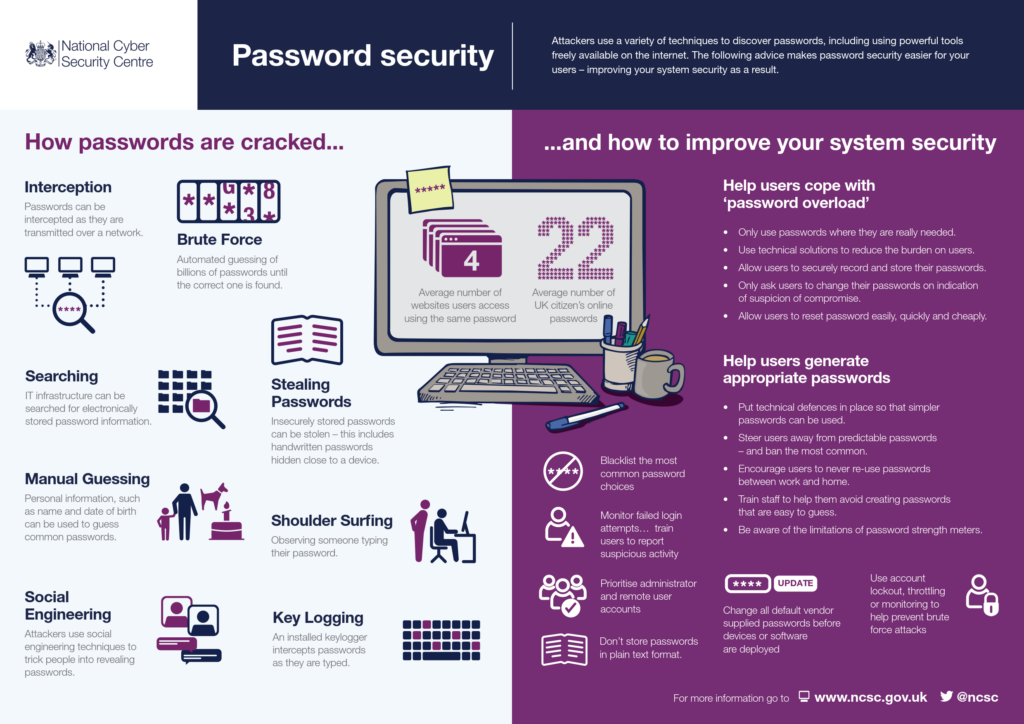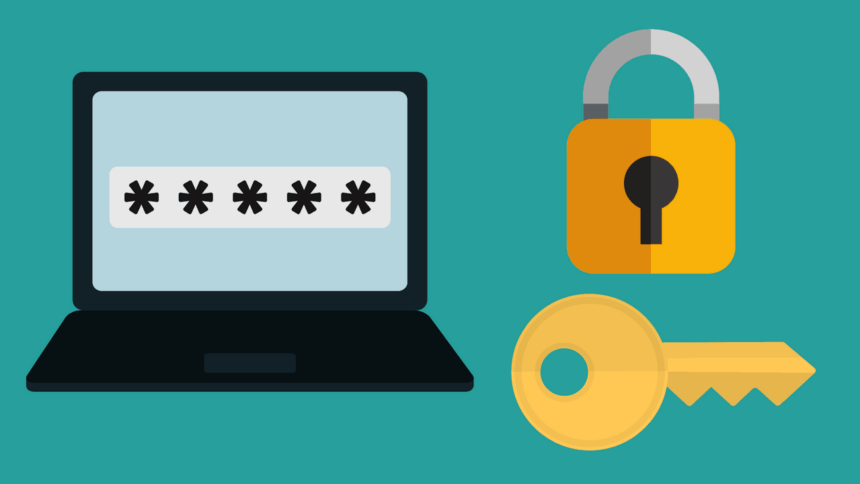The world of the internet is vast and full of information, connections, and opportunities. But with this vastness comes a responsibility – the need to safeguard your digital presence. One of the crucial steps in securing your online life is creating robust passwords. In this digital age, where cybersecurity threats are on the rise, understanding how to craft a strong password is more important than ever.

What makes a password strong?
Creating a strong password involves several key practices:
- Avoid personal information: Strong passwords should not include easily accessible information such as names, birthdays, addresses, or phone numbers. Personal details are easy for cybercriminals to exploit.
- Use a variety of characters: Secure passwords should consist of a combination of letters, numbers, and symbols. The more diverse your characters, the more complex and difficult to crack your password becomes.
- Prioritize length: Longer passwords, ideally 16 characters or more, are harder to breach. Length is a strong defence against data breaches or cyberattacks.
- Never reuse passwords: Using the same password for multiple accounts increases your vulnerability to credential stuffing attacks, a tactic often used by cybercriminals.
- Avoid real words: Hackers deploy programs that scan dictionaries to crack passwords. Avoid using common words, proper nouns, or standalone dictionary words in your password.

Why is password security so important?
Weak password security poses a significant threat to both individuals and businesses. The consequences of inadequate password security can be dire:
- Data breaches: Weak passwords make it easier for cybercriminals to breach accounts and access sensitive data.
- Identity theft: Stolen passwords can lead to identity theft, where your personal information is misused for malicious purposes.
- Computer hijacking: Cybercriminals can take control of your devices and use them for their own agendas, such as launching attacks or spreading malware.
- Blackmail: With compromised passwords, individuals may become targets of blackmail, putting their privacy and reputation at risk.
- Loss of privacy: Weak passwords can result in the loss of personal and private information, a breach that can be distressing and damaging.
In the United States alone, businesses and individuals lost nearly $4.2 billion to cybercrimes within the last year, underlining the real financial impact of weak password security.

How do passwords get hacked?
There are various techniques cybercriminals use to compromise passwords:
- Dictionary attacks: In these brute force attacks, hackers use malicious programs to try every word in a dictionary as a potential password, emphasizing the need for diverse characters in your password.
- Phishing scams: Phishing aims to trick users into revealing login credentials through fake websites and malicious links. Always verify the links you click and utilize antivirus software.
- Password spraying: This method involves guessing passwords using a list of commonly used ones. Strong, unique passwords make password spraying more challenging.
- Keylogging: Malware is used to record keystrokes, potentially capturing usernames and passwords. Antivirus software can help detect and prevent keylogging.
- Credential stuffing sttacks: Cybercriminals use known passwords from previous data breaches to gain access to accounts. Avoid password reuse to protect your sensitive data.
In this digital era, safeguarding your personal information and online presence starts with strong password security. By following best practices, you can better protect your data and maintain peace of mind in the ever-evolving landscape of cybersecurity.








